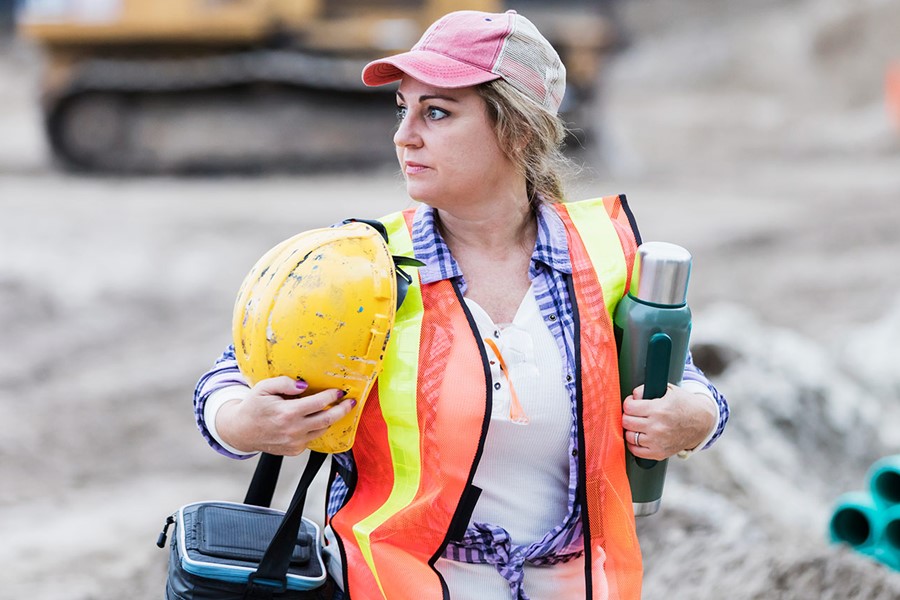

Archived Insight | March 10, 2021
2020 dealt a body blow to the construction and built environment industry. Contractors actually cancelled more projects than they started, and employment in construction plummeted by as much as 36 percent in some metro areas. But as the pandemic recedes, there’s perhaps no industry better poised for a roaring comeback — provided it has the right people for the job.

Share this page
Even before the pandemic, employers in the construction and built environment faced difficulties recruiting workers for both on-site jobs and administrative tasks. But COVID-19's massive disruption of society can offer companies new opportunities to build a better, more efficient workforce. Here’s some broad recruitment strategies firms should keep in mind to help solve not only their current labor needs, but their future ones as well.
The career prospects for Americans without a college degree have steadily shrunk throughout the decades, with most jobs providing a sense of financial security requiring some sort of education beyond high school. Construction jobs have been one of the few oases in the desert of opportunity for non-college educated workers, providing strong benefits and competitive wages workers can build a life around.
Emphasize this strength in your recruitment material. Give specifics about the benefits you provide and how rare they are for workers without degrees in other industries.
 The overwhelming majority of construction workers are male, with women accounting for just under 11 percent of the workforce in 2020. A lot of cultural headwinds keep women underrepresented in construction, including the perception that the industry is a “boy’s club” and that every job requires strenuous physical labor. But employers know there’s a huge demand for workers to fill skilled labor and administrative roles. Overlooking women in your recruiting means you’re missing out on candidates who could thrive in these roles and give you a competitive edge.
The overwhelming majority of construction workers are male, with women accounting for just under 11 percent of the workforce in 2020. A lot of cultural headwinds keep women underrepresented in construction, including the perception that the industry is a “boy’s club” and that every job requires strenuous physical labor. But employers know there’s a huge demand for workers to fill skilled labor and administrative roles. Overlooking women in your recruiting means you’re missing out on candidates who could thrive in these roles and give you a competitive edge.
Because many people assume construction jobs are for men only, you’ll need to create recruitment strategies customized for women. You could start by reaching out to some of the various professional groups for women in the construction industry and build campaigns based on what you learn.
While not a solution to your immediate labor needs, promoting the industry to next generation of workers can help ensure you’ll have talent ready for the future. Investing in youth outreach programs to middle or high school students can spark interest and provide preliminary training for potential employees down the line.
We know that the challenges facing companies in the built environment require unique solutions. Providing trusted advice tailor-made for your organization is what we do. Leave your contact information and one of our professionals will reach out to start a conversation.

Compliance, Health, Multiemployer Plans, Public Sector, Healthcare Industry, Higher Education, Architecture Engineering & Construction, Corporate, Pharmaceutical

Retirement, Compliance, Multiemployer Plans, Public Sector, Healthcare Industry, Higher Education, Architecture Engineering & Construction, Corporate

Technology, Benefits Administration, Communications, Multiemployer Plans, Public Sector, Healthcare Industry, Higher Education, Architecture Engineering & Construction, Consulting Innovation, Corporate, Benefits Technology, ATC, Organizational Effectiveness, Health, Retirement, Artificial Intelligence
This page is for informational purposes only and does not constitute legal, tax or investment advice. You are encouraged to discuss the issues raised here with your legal, tax and other advisors before determining how the issues apply to your specific situations.
Don't miss out. Join 16,000 others who already get the latest insights from Segal.
© 2026 by The Segal Group, Inc.Terms & Conditions Privacy Policy Style Guide California Residents Sitemap Disclosure of Compensation Required Notices